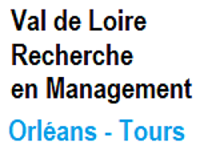Research area 1- Transformations of collectives, organizations, and ecosystems
This area of research is coordinated by Typhaine LEBEGUE, Senior Lecturer, authorised to supervise research (HDR), and Eline NICOLAS, Senior Lecturer. It involves almost 20 researchers.
The research methodologies deployed are mainly qualitative, but also include methodological triangulation (use of international databases of project practices and managerial situations). Research contracts regularly provide a basis for the work carried out, and offer prospects in terms of promotion and dissemination of results (conferences and publications). They provide both a strong regional presence (e.g. project on the invisibility of discrimination against women in education and employment, work on the social and organisational acceptance of biopharmaceuticals in connection with the Ambition Research & Development (ARD) 2020 programmes) as well as a national and international presence (e.g.: Francophone University Agency (AUF) research contracts on “managerial situations in projects”, ARC crowdfunding with the Management Research Centre CEREGE –EA 1722).
Skills and job forecasting
The research conducted in this area aims to study the concept of skills, the related management tools, the associated management practices (forward management of the workforce, jobs and skills; job forecasting) and their social effects. It presents new ways of understanding the connection in management science between skills and jobs in human resource (HR) planning systems, including the issues of job forecasting, optimisation of the different HRM practices (recruitment, mobility management, career and career path management, skills assessment, social management control, training etc.) as well as the various actors involved (internal and external stakeholders). These issues also involve the expected effects and consequences in terms of performance of the organisations, whether they are large or small, in the public or private sector. The research carried out in these areas therefore reveals two aspects: the issue of understanding the relationship between individuals and organisations, and the transition from the concept of skills to the notion of jobs.
Strategic and organisational dynamics & projects
The research conducted concerns strategic projects as “systems for anticipating and rationalising temporary collective action” through coordination and cooperation. They lead in particular to analysis of the method of creating the strategic resources and dynamic capabilities of organisations and inter-organisational networks in an environment marked by increasing uncertainty, complexity and time pressure. Project mode is central to the process of change that these organisations are trying out, at the meeting place between strategy and methods of organisation. The researchers in the team take special interest in the processes of creating, mobilising, finalising, leading, structuring, and regenerating individual, collective, organisational and inter-organisational skills, and support for change and innovation policies. They study them in fields (SMEs and SME networks, non-market sector, clusters, industrial estates etc.) and tackle issues (sustainable development, scientific research, organisational innovation etc.) that have not yet been greatly investigated from this point of view.
